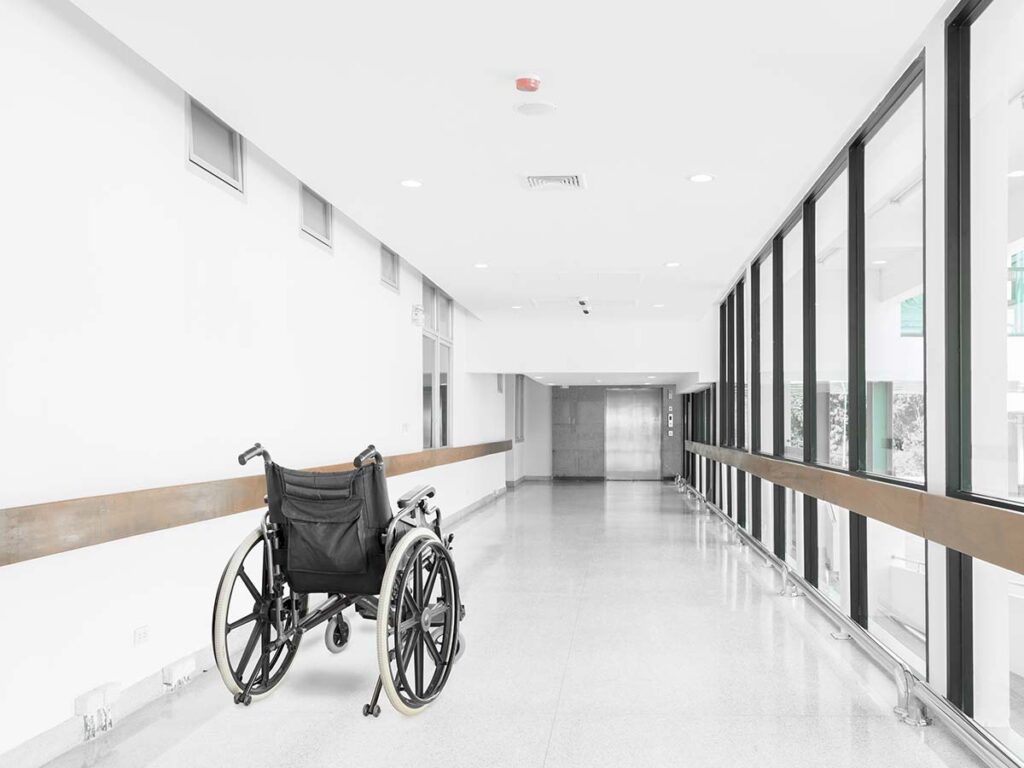How to Spot Nursing Home Neglect Early
Introduction
When placing a loved one in a nursing home, families trust that the facility will provide consistent, compassionate, and proper care. Unfortunately, nursing home neglect is a widespread issue that can lead to serious harm if left undetected. Neglect occurs when a facility fails to meet the basic needs of its residents, either through inaction or poor management.
Spotting the early signs of neglect is essential to protecting the health, dignity, and well-being of nursing home residents. Whether the issue stems from overworked employees, inadequate training, or unsafe living conditions, families must stay alert and take action at the first indication of improper care.

Common Early Warning Signs of Nursing Home Neglect
1. Poor Hygiene and Unsanitary Conditions
If a resident is consistently in dirty clothes, smells of urine, or appears unbathed, these may be signs of home neglect. A clean environment is essential to preventing infections and promoting overall well-being.
Pay attention to:
- Soiled bedding or clothing
- Unkempt hair or nails
- Foul odors in living quarters
- Unsanitary living conditions, such as dirty bathrooms or communal spaces
2. Unexplained Weight Loss or Dehydration
Sudden or significant weight loss may signal that the resident is not receiving adequate food or hydration. Dehydration and malnutrition can quickly lead to more severe health issues, especially in vulnerable residents.
Warning signs include:
- Dry mouth and cracked lips
- Sunken eyes or loose skin
- Lack of appetite without a medical cause
- Fatigue or muscle weakness
3. Pressure Sores and Medical Neglect
Pressure sores (also known as pressure ulcers) are often preventable with regular repositioning and adequate care. Their presence may suggest that staff members are not providing proper medical attention or monitoring residents’ physical health.
Also watch for:
- Untreated infections
- Medication errors
- Worsening medical conditions without explanation
4. Emotional and Behavioral Changes
Emotional neglect and emotional abuse may not leave physical marks, but they can severely impact a resident’s mental health and quality of life. Look for unusual behavior or signs of emotional distress, such as:
- Withdrawal from activities or family
- Sudden fearfulness or anxiety
- Refusal to speak around certain staff members
- Depression or emotional flatness
5. Physical Signs of Harm
Neglect can sometimes cross the line into physical abuse. If a resident presents with unexplained bruises, broken bones, or unexplained injuries, these may be clear indicators of abuse or lack of supervision.
Check for:
- Cuts or lacerations
- Bandages without explanation
- Limping or sudden mobility issues
- Injuries that are downplayed by staff
Monitoring Staff Behavior and Facility Conditions
Staff Interaction and Conduct
How staff members interact with residents can provide insights into the overall quality of care. If staff seem impatient, dismissive, or defensive when asked questions, this may be a red flag.
Signs to observe:
- Staff unwilling to answer questions or provide updates
- High turnover or staffing shortages
- Lack of properly trained personnel
- Visible frustration or aggression toward residents
Environment and Facility Management
The condition of the facility itself is another important factor. Poor management often results in safety concerns, such as broken equipment, lack of security, or missed maintenance.
Look for:
- Inadequate lighting in hallways or rooms
- Non-functioning call buttons
- Unsafe floors or walkways
- Delays in responding to resident needs
What to Do If You Suspect Nursing Home Neglect
1. Document the Evidence
Keep a detailed record of everything you see or hear, including:
- Dates and times of incidents
- Photographs of the resident or their environment
- Copies of medical records or accident reports
- Statements from other residents or family members
2. Address Concerns with the Facility
Raise concerns with the nursing home’s management. Express your observations and request an explanation or corrective action. Keep a record of all communications and follow up on any promises made.
3. Contact Authorities or Legal Professionals
If you suspect abuse or neglect is ongoing, contact adult protective services, your local ombudsman, or local authorities. You may also want to speak with an experienced personal injury attorney who can advise you on your options to pursue justice and hold responsible parties accountable.
Learn more about how to detect and act on signs of nursing home neglect. Call Greenstein & Pittari, LLP at (800) 842-8462 to schedule your free, no-obligation consultation. You can also reach us anytime through our contact page. Let us help you take the first step toward justice and recovery.

FAQs: How to Spot Nursing Home Neglect Early
Q1: What are the first signs of nursing home neglect?
Look for warning signs like poor hygiene, unexplained weight loss, pressure sores, and emotional withdrawal. These are often the earliest indicators of neglect.
Q2: Can emotional abuse be a form of nursing home neglect?
Yes. Emotional abuse and neglect can include isolation, verbal mistreatment, or ignoring a resident’s emotional needs. These can have long-lasting psychological effects.
Q3: How should I respond if I suspect nursing home abuse?
Document your concerns, report them to facility management, and contact appropriate authorities or legal professionals. Don’t wait—further harm can occur if nothing is done.
Q4: Is poor staff behavior a sign of a larger issue?
It can be. Disrespectful or inattentive staff may point to systemic problems, such as overworked employees or inadequate supervision.
Q5: Can I take legal action for nursing home neglect?
Yes. If neglect results in serious harm or worsens an elderly individual’s well-being, you may have grounds for a nursing home neglect case and could be entitled to seek compensation.
